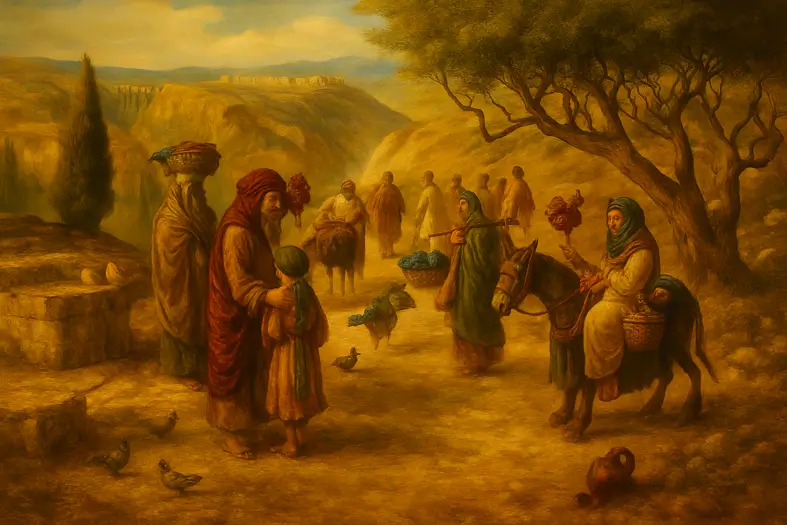


It is forbidden to covet or benefit from the ornaments of idols, such as gold or silver plating.
This mitzvah prohibits Israel from coveting or taking the decorative ornaments of idols — including gold, silver, and precious materials. Rambam (Hilchot Avodat Kochavim 7:4–5) rules that ornaments, though not functional service-vessels, are equally forbidden for benefit (issur hana’ah). The Torah emphasizes that greed for such ornaments can ensnare Israel into honoring the idol itself.
The Talmud (Avodah Zarah 52b) distinguishes between service items, which are prohibited in mitzvah 54, and mere adornments, which are prohibited here. Rashi (Deut. 7:25) explains that desiring these ornaments risks transferring reverence to the idol. Ramban clarifies that the Torah repeats prohibitions to teach us the danger of even indirect attachment. Sefer HaChinuch (Mitzvah 429) explains the law as a protection against covetousness: Israel must value holiness over wealth. Midrash (Sifrei Devarim §61) declares: “Gold of the idol is like the idol itself.”
Commentary & Classical Explanation:
Contrast with…
Parallel to…
Guarding Spiritual Integrity
Ethical Consumerism
Cultural Boundaries in Media & Fashion
Technology & Symbolism
Public Jewish Identity


Mitzvot that prohibit worship of false gods and practices associated with idol worship.
Relates to internal intentions, beliefs, and mindfulness in performing mitzvot or avoiding transgressions.
Signifies awe and reverence toward Hashem—living with awareness of His greatness and presence.
Represents the concept of spiritual intentionality, purity, and sanctity—set apart for a higher purpose.
Tied to the eternal covenant between G‑d and the Jewish people, including signs like brit milah and Shabbat.
Mitzvot that strengthen communal life — showing up, participating, supporting, and belonging. Community is where holiness is shared, prayers are multiplied, and responsibility becomes collective.
Pertains to the power of speech—both positive and negative—including lashon hara, vows, and blessings.
Represents Emunah—the deep, inner trust in Hashem’s presence, oneness, and constant involvement in our lives. This badge symbolizes a heartfelt connection to G-d, rooted in belief even when we cannot see. It is the emotional and spiritual core of many mitzvot.
Mitzvot that define and deepen the relationship between a person and their Creator. These include commandments involving belief, prayer, Shabbat, festivals, sacrifices, and personal holiness — expressions of devotion rooted in divine connection.

Dive into mitzvos, prayer, and Torah study—each section curated to help you learn, reflect, and live with intention. New insights are added regularly, creating an evolving space for spiritual growth.

Explore the 613 mitzvos and uncover the meaning behind each one. Discover practical ways to integrate them into your daily life with insights, sources, and guided reflection.

Learn the structure, depth, and spiritual intent behind Jewish prayer. Dive into morning blessings, Shema, Amidah, and more—with tools to enrich your daily connection.

Each week’s parsha offers timeless wisdom and modern relevance. Explore summaries, key themes, and mitzvah connections to deepen your understanding of the Torah cycle.